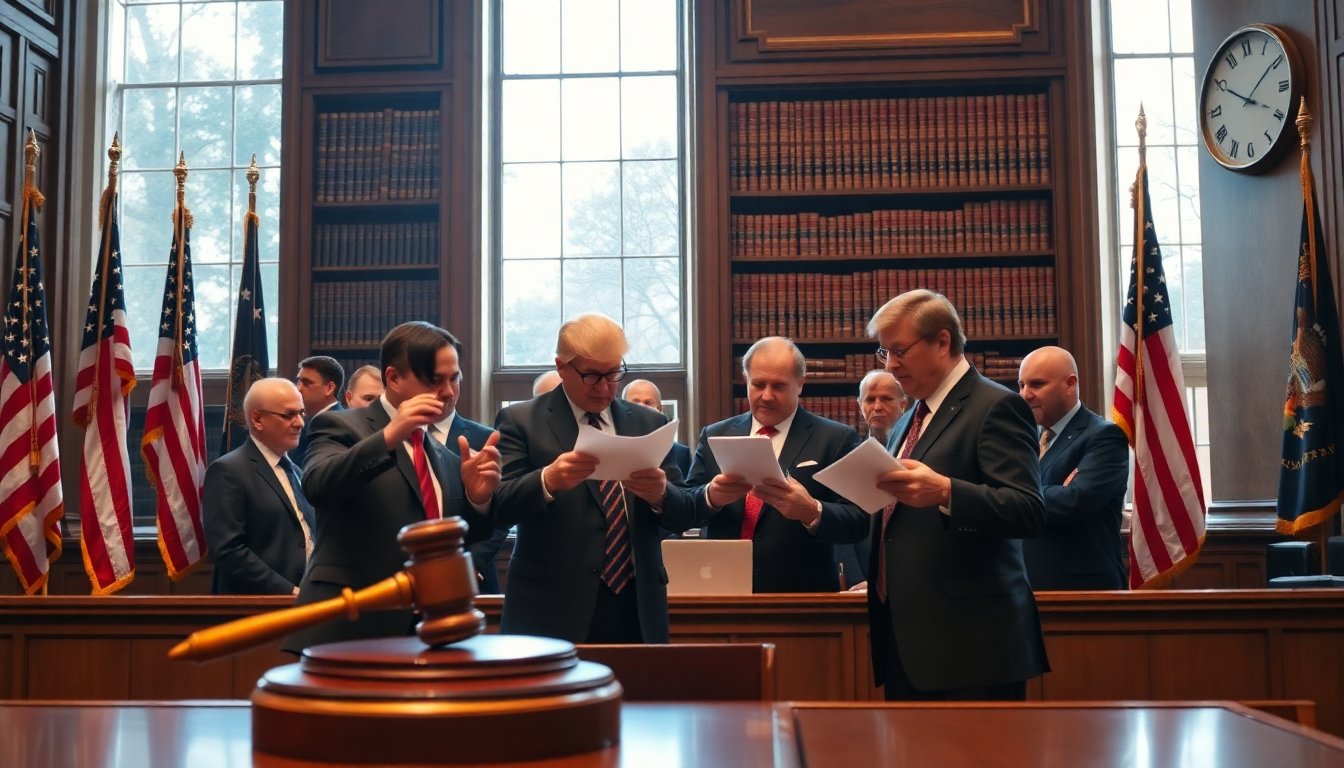Table of Contents
In a significant development, a federal judge publicly criticized the Trump administration regarding its use of social media. This criticism particularly focused on comments made by former President Donald Trump concerning Supplemental Nutrition Assistance Programs (SNAP). This incident is occurring during a prolonged government shutdown that has reached unprecedented lengths, significantly affecting millions of American families who depend on these essential benefits.
The controversy surrounding SNAP benefits
This week, former President Donald Trump addressed a judge’s ruling on Supplemental Nutrition Assistance Program (SNAP) benefits via his platform, Truth Social. He stated that these benefits would only be restored if the Democratic Party agreed to reopen the government. This remark is linked to the ongoing partial government shutdown, which marks the longest in U.S. history. Judge John McConnell, who oversees the case, raised concerns that Trump’s comments suggest an intention to disregard the court’s order.
Response from the administration
Following Trump’s post, White House Press Secretary Karoline Leavitt sought to address the situation by stating the administration would comply with the court’s ruling. However, the impact was already significant, as Senate Minority Leader Mitch McConnell highlighted the critical need for the government to provide funding for November’s SNAP benefits, which support approximately 42 million recipients. As the administration expressed intentions to appeal the ruling, tensions between the judiciary and the executive branch escalated.
Judicial frustrations with social media conduct
Judge McConnell’s comments reflect a growing concern among judges about the impact of social media on legal proceedings. This issue has gained prominence as the government has intensified efforts to deport unauthorized immigrants, leading to an increase in legal challenges. For example, the mayor of Newark, along with several Democratic lawmakers, encountered significant barriers while trying to visit a local federal detention facility, resulting in a tense confrontation.
Legal repercussions for political actions
Following a recent confrontation, Representative LaMonica McIver faces multiple charges, including the assault of federal officials. In a related development, a judge has mandated the removal of several Department of Homeland Security social media posts that characterized McIver’s actions as criminal. U.S. District Judge Jamel Semper emphasized the prejudicial nature of these posts, noting their lack of factual accuracy. This case underscores how social media narratives can complicate legal proceedings and significantly affect public perception.
Additional court cases reflecting the turmoil
A significant legal case has emerged in Utah involving Erwin Ramirez Castro, a former Ecuadorian national soccer player. Although he was acquitted of domestic charges, the Trump administration attempted to detain him using newly enacted legislation designed to expedite deportations. In a pivotal decision, District Judge Richard Boulware ruled in favor of Ramirez Castro, stating that the law under which he was held only applies to individuals with prior criminal convictions.
The ongoing implications of social media on justice
The social media practices of the Trump administration have far-reaching effects that surpass individual cases. A significant example includes Trump’s public accusations against various political figures, which raises questions about potential biases influencing legal proceedings. Former FBI Director James Comey and New York Attorney General Letitia James have been charged, with critics suggesting these actions may be politically motivated. This situation complicates the already intricate relationship between law and politics.
Navigating the complexities of governance and justice
The landscape of U.S. governance features a complex relationship between political rhetoric and judicial processes. The ongoing government shutdown and legal challenges facing the Trump administration have intensified scrutiny over these dynamics. Furthermore, the influence of social media on public perception and judicial outcomes continues to be a significant concern. These developments underscore the importance of a clear separation between political discourse and the fair administration of justice, as both branches of government confront this challenging period in American history.


